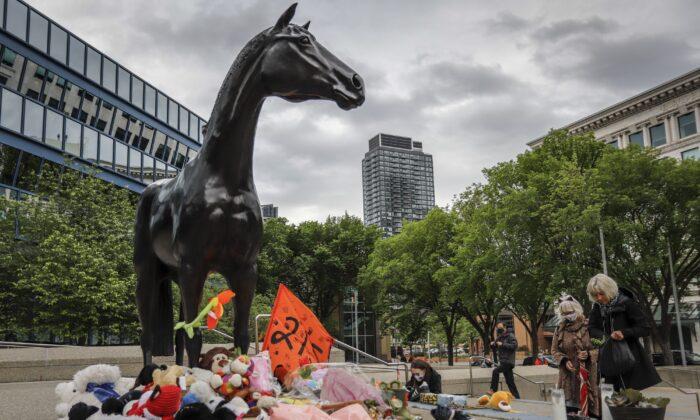The whole question of Canada’s relationship with the Sikhs is very complicated and not easily understood by those who are not knowledgeable of the intricacies of the question. The Sikh separatist element is very much a minority of the Sikh community in India, but is much more widely embraced in the Sikh community of Canada.
Readers will recall that when revelations came to public notice of Chinese regime-directed interventions in several Canadian parliamentary elections and in a mayoral election in Vancouver—and that there were attempts to influence Canadians politically by visiting various inconveniences and harassments upon their relatives resident in China—the federal government finally, and with inexplicable or at least unexplained reluctance, agreed to green-light the investigations of committees and agencies charged with these matters. It also attempted to establish a former governor general as, in effect, a censor who would determine what it was appropriate to reveal to the public. This wheeze was shot to pieces by the other parties and even some Liberals as inadequate public airing of a serious question involving the sovereignty and political integrity of this country.
However, we recently learned that a substantial number of requested documents have been redacted to reduce materially their significance, and an additional number has been withheld completely in the name of retention of confidentiality of cabinet papers. That is a well-established guideline for non-disclosure, but it is contrary to what the minister on behalf of the government promised. And presumably there would be a method of releasing all of this material to Justice Hogue, who could, in discussion with the government, determine where it was appropriate to have a seal of confidentiality over explicit disclosure to a broader readership.
All of the opposition parties, and therefore a majority of members of Parliament, have taken issue with this government backpedalling. The commission and the government are negotiating, and Justice Hogue has a strong position both in requiring specific performance with Leblanc’s promises and in having at her back an apparent parliamentary majority. This begs the question of what would possess the government to box itself in like this, and it invites the supposition that it has something to hide that it had promised to reveal.
Unearthing this sort of information is the purpose of establishing the commission. The greater the gap that there appears to be between the strongly asserted public interest in learning of foreign interference in our political process and the government’s desire to conceal a full knowledge of that subject, the greater the level of public skepticism that will arise about the government’s conduct and motives.
It has been necessary at every stage to drag the government, grumbling and dissembling and now backtracking with very feeble excuses—and this from a government which, as its outburst against the Indians demonstrated, is elsewhere not only loose-lipped but trigger-happy. Everyone, including sensible Liberals, should encourage Madame Justice Hogue to get all of the facts and then release to the public a summary of them, withholding only those matters that she and her commission by non-partisan criteria consider should remain confidential in the national interest.
The longer the government continues with this evasiveness, the more damage it will do to its own credibility.







